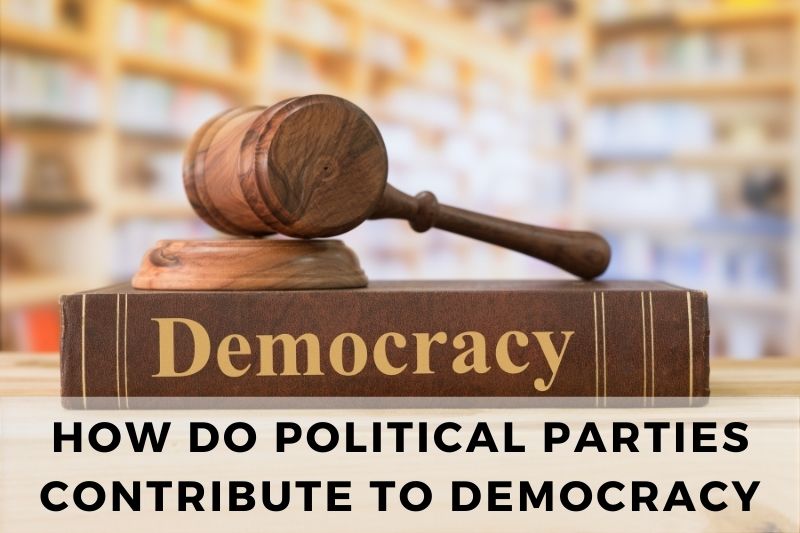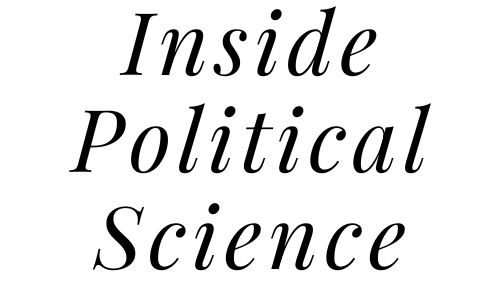
Political parties are the backbone of democratic systems worldwide. They play a crucial role in shaping the political landscape, representing diverse interests, and facilitating citizen engagement. Understanding the contributions of political parties to democracy is essential for grasping the functioning of democratic governance.
In this article, we will delve into the fundamental ways in which political parties contribute to the sustenance and vitality of democratic societies. From representation to accountability, political parties are pivotal actors in the democratic process, impacting governance and citizenry alike. Let’s explore their significance in greater detail.
How Do Political Parties Contribute to Democracy
#1. Representation of Diverse Interests
The purpose of political parties serve as vehicles for the representation of diverse interests within society. By organizing around specific ideologies, policies, or demographic groups, parties provide a platform for individuals to collectively advocate for their concerns. This representation ensures that a wide range of voices is heard in the political process, enhancing the legitimacy of decision-making and fostering inclusivity.
#2. Encourage Citizen Participation
Political parties play a crucial role in encouraging citizen participation in the democratic process. Through activities such as campaigning, voter mobilization, and grassroots organizing, parties engage citizens in political discourse and encourage them to exercise their right to vote. By mobilizing supporters and raising awareness about key issues, parties help to energize and mobilize the electorate, strengthening the democratic system.
#3. Hold Elected Officials Accountable
One of the primary functions of political parties is to hold elected officials accountable for their actions. Parties act as watchdogs, monitoring the performance of government officials and ensuring that they adhere to their campaign promises and fulfill their responsibilities. Through mechanisms such as oversight committees, party discipline, and public scrutiny, parties help to maintain the integrity and effectiveness of democratic governance.
#4. Help Formulate and Debate Public Policy
Political parties play a central role in the formulation and debate of public policy. Parties develop distinct policy platforms based on their ideological principles and priorities, providing voters with clear choices during elections. Through debates in legislative bodies and public forums, parties engage in constructive dialogue and negotiation to shape the direction of government policy, ensuring that the interests and values of different segments of society are taken into account.
#5. Contest Elections
At the heart of democratic politics lies the competition for power through free and fair elections, and political parties are the primary vehicles through which this competition occurs. Parties nominate candidates, develop campaign strategies, and mobilize resources to compete for elected office at local, regional, and national levels. By offering voters a choice between competing visions for governance, parties ensure that political power is exercised with the consent of the governed.
#6. Contribute to Political Stability and Governance
Political parties play a vital role in promoting political stability and effective governance within democratic systems. By organizing and structuring political competition, parties help to channel societal conflicts and tensions into peaceful and institutionalized processes. Through the formation of coalition governments and the negotiation of power-sharing agreements, parties facilitate the smooth functioning of democratic institutions and ensure continuity in governance. Additionally, parties provide a framework for the orderly transition of power between different political factions, thereby preventing political crises and promoting stability.
#7. Bridging Divides Within Society
Political parties have the potential to bridge divides within society by fostering dialogue and cooperation among diverse groups and interests. Through their outreach efforts and engagement with different segments of the population, parties can build bridges across social, ethnic, and ideological cleavages, promoting social cohesion and national unity. By providing a platform for consensus-building and compromise, parties help to mitigate polarization and promote understanding among competing factions, contributing to the overall health and resilience of democratic societies.
#8. Stimulate Public Discourse
Political parties play a crucial role in stimulating public discourse and promoting informed civic engagement. Through their campaigns, policy proposals, and public statements, parties shape the political agenda, influence voters and encourage citizens to engage with key issues facing their communities and nations. By providing competing narratives and perspectives on pressing societal challenges, parties foster debate and critical thinking among the electorate, empowering citizens to make informed decisions at the ballot box. Additionally, parties serve as a forum for the exchange of ideas and the articulation of public opinion, enriching democratic deliberation and strengthening civil society.
#9. Oversight and Checks on Government (While in Opposition)
While in opposition, political parties serve as important checks on government power, holding ruling parties accountable for their actions and decisions. Opposition parties scrutinize government policies, conduct oversight of executive actions, and expose potential abuses of power through parliamentary mechanisms such as question periods, debates, and inquiries. By providing a loyal opposition, parties ensure that the government is subject to robust scrutiny and criticism, preventing the concentration of power and safeguarding democratic principles of transparency and accountability.
#10. Contribute to Civic Education and Awareness
Political parties contribute to civic education and awareness by engaging citizens in the political process and promoting democratic values and principles. Through their outreach activities, parties educate voters about the electoral system, the importance of civic participation, and the rights and responsibilities of citizenship. By mobilizing volunteers, organizing political events, and disseminating information, parties help to raise awareness about pressing social and political issues, empowering citizens to take an active role in shaping the future of their communities and nations.
Closing Thoughts
In conclusion, political parties are indispensable actors in the functioning of democratic systems, contributing in multifaceted ways to the health and vitality of democratic governance. From representing diverse interests to fostering citizen participation and holding elected officials accountable, parties play a central role in shaping the trajectory of political development. As we navigate the complexities of contemporary politics, it is essential to recognize and appreciate the crucial role that political parties play in upholding democratic principles and ensuring the effective functioning of democratic institutions. By understanding and supporting the contributions of political parties, we can strengthen democracy and advance the common good for all citizens.
